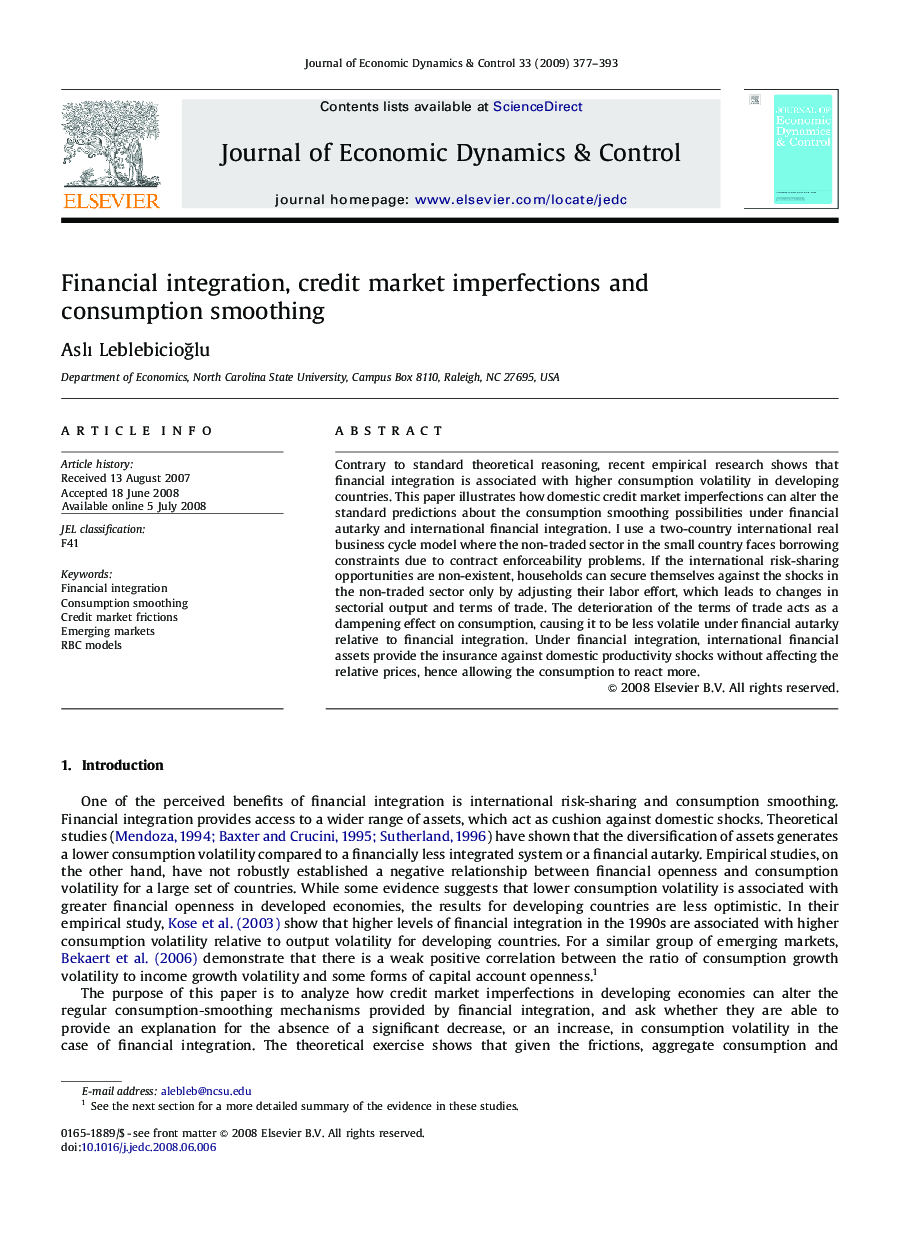| Article ID | Journal | Published Year | Pages | File Type |
|---|---|---|---|---|
| 5099110 | Journal of Economic Dynamics and Control | 2009 | 17 Pages |
Abstract
Contrary to standard theoretical reasoning, recent empirical research shows that financial integration is associated with higher consumption volatility in developing countries. This paper illustrates how domestic credit market imperfections can alter the standard predictions about the consumption smoothing possibilities under financial autarky and international financial integration. I use a two-country international real business cycle model where the non-traded sector in the small country faces borrowing constraints due to contract enforceability problems. If the international risk-sharing opportunities are non-existent, households can secure themselves against the shocks in the non-traded sector only by adjusting their labor effort, which leads to changes in sectorial output and terms of trade. The deterioration of the terms of trade acts as a dampening effect on consumption, causing it to be less volatile under financial autarky relative to financial integration. Under financial integration, international financial assets provide the insurance against domestic productivity shocks without affecting the relative prices, hence allowing the consumption to react more.
Related Topics
Physical Sciences and Engineering
Mathematics
Control and Optimization
Authors
Aslı LeblebicioÄlu,
